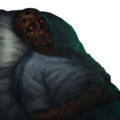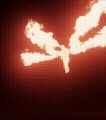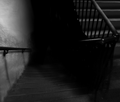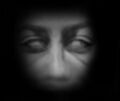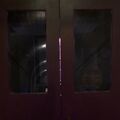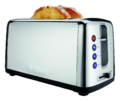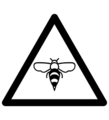The official discord link if you wish to join the discord: https://discord.gg/j5RKwCvAFu
Support the wiki on our official Ko-Fi page or Patreon page!
SCP Foundation: Difference between revisions
| Line 75: | Line 75: | ||
1788.jpg|SCP-1788|link=SCP-1788 | 1788.jpg|SCP-1788|link=SCP-1788 | ||
File:SCP-2875.jpg|link=SCP-2875|SCP-2875 | File:SCP-2875.jpg|link=SCP-2875|SCP-2875 | ||
File:SCP-2786.jpg|SCP-2786|link=SCP-2786 | File:SCP-2786.jpg|link=SCP-2786|link=SCP-2786 | ||
File:5212.jpg|link=SCP-5212|SCP-5212 | |||
</gallery> | </gallery> | ||
Revision as of 22:36, 18 September 2024
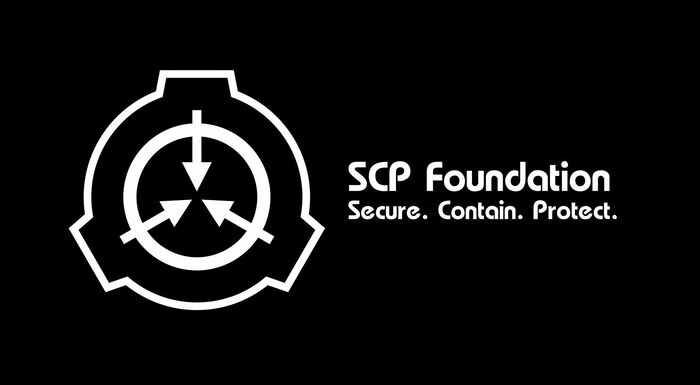
Background
The SCP Foundation is a creative fiction website detailing top-secret investigations, research, and containment policies of the paranormal. These paranormal examples are creatures, entities, events, phenomenons, artifacts, and objects that threaten the normalcy/order of the world, and the worldwide Men-in-Black organization the SCP Foundation does everything in its nigh-omniscient and seemingly limitlessly funded power to contain these anomalies. Some of these anomalies, codenamed "SCPs", are incredibly dangerous humanoids and creatures that could end the world if it were not for their 24/7 imprisonment.
Terminology
Safe: Safe-class SCPs are anomalies that are easily and safely contained. This is often because the Foundation has researched the SCP well enough that containment does not require significant resources or that the anomalies require a specific and conscious activation or trigger. Classifying an SCP as Safe, however, does not mean that handling or activating it does not pose a threat.
Euclid: Euclid-class SCPs are anomalies that require more resources to contain completely or where containment isn't always reliable. Usually, this is because the SCP is insufficiently understood or inherently unpredictable. Euclid is the Object Class with the greatest scope, and it's usually a safe bet that an SCP will be this class if it doesn't easily fall into any of the other standard Object Classes.
Keter: Keter-class SCPs are anomalies that are exceedingly difficult to contain consistently or reliably, with extensive and complex containment procedures. The Foundation often can't contain these SCPs well due to not having a solid understanding of the anomaly, or lacking the technology to contain or counter it properly. A Keter SCP does not mean the SCP is dangerous; it is simply very difficult or costly to contain.
Thaumiel: Thaumiel-class SCPs are anomalies that the Foundation specifically uses to contain other SCPs. Even the mere existence of Thaumiel-class objects is classified at the highest levels of the Foundation and their locations, functions, and current status are known to few Foundation personnel outside of the O5 Council.
Canon Rules
Despite what many may believe, the SCP Foundation, does in fact have a canon, there are just a multitude of canons, that sometimes reference one another. The link prior even has them give some of the shared canons made over the years, the following will be explaining how we treat canon on here.
Original Article Canon
Original Article Canon refers to SCP pages based on their original pages. For instance, this is anything within the SCP number line-up. The only other articles that can be used within this canon, are things officially linked to their articles. For example, SCP articles will tend to link to other original canon articles, though also things like SCP-682 having a direct link to its termination article on its original page.
Different Canons
On this wiki there will be no "Extended Canon" key for the SCPs where one can use canons under a bizarre set of rules, instead, there will be profiles based on a specific canon each. Specific canons can normally be found on SCP Foundation's canon hub, where they will normally reference the original article along with other stories that can be found in SCP Tales, with some of them also being their own canon. These canons normally vary depending on how the author or a collaboration team treats them, but regardless, they should always be their own profiles and never on the original article profile.
Knowledgeable Members
Characters
Unknown Object Classes
-
SCP- -J
-
SCP-048
Safe
-
SCP-138
-
SCP-999
Euclid
-
SCP-001 (Dr Clef's Proposal)
-
SCP-049
-
SCP-053
-
SCP-087
-
SCP-087-1
-
SCP-096
-
SCP-173
-
SCP-247
-
SCP-303
-
SCP-426
-
SCP-548
-
SCP-795
-
SCP-895
-
SCP-1294
-
SCP-1436
-
SCP-1529
-
SCP-2441
-
SCP-3143
-
SCP-3160
-
SCP-5210
Keter
-
SCP-001 (Dr Clef's Proposal)
-
SCP-001 (Ouroboros/djkaktus's Proposal II)
-
SCP-006-J
-
SCP-035
-
SCP-239
-
SCP-682
-
SCP-939
-
SCP-1440
-
SCP-1504
-
SCP-1788
-
SCP-2875
-
-
SCP-5212

